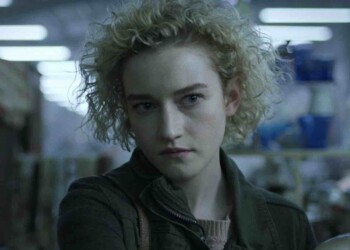In the first edition of Send the Ravens for “House of the Dragon,” we answer your questions about Targaryen prophecies, Targaryen names and much more…
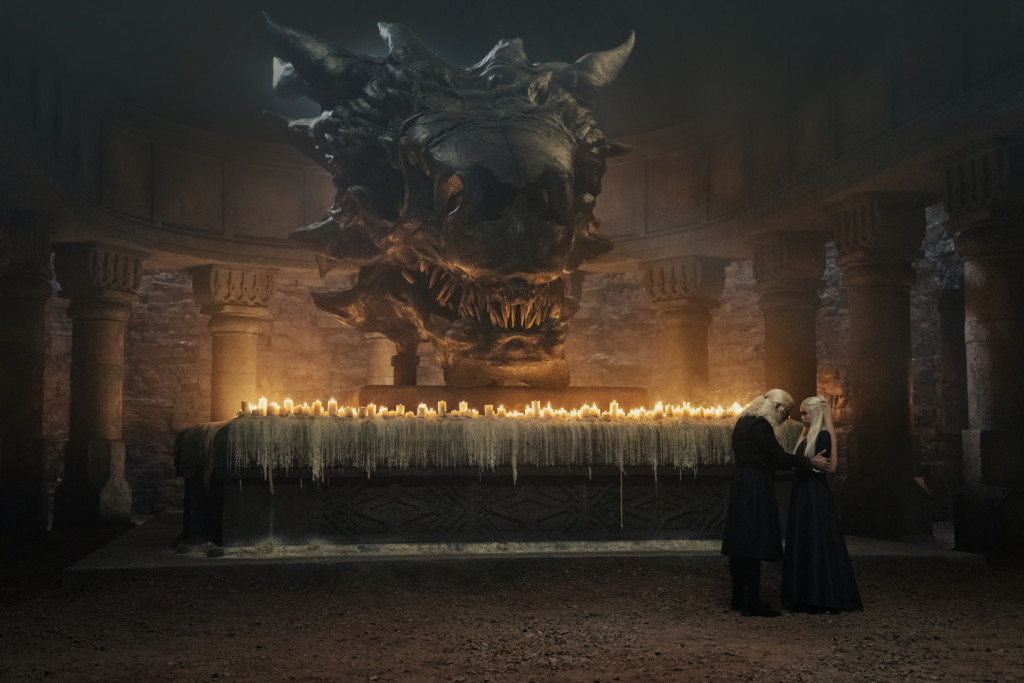
By Damon Martin — Editor/Lead Writer
With “House of the Dragons” in full swing with two episodes down already, we are happy to return to our weekly Send the Ravens column where we answer your questions about the show, the mythology from the books and anything else related to the “Game of Thrones” — or in some cases “A Song of Ice and Fire” — universe.
Of course, “House of the Dragon” got off to a massive start in the first two episodes, which set up the premise for the entire series with a familiar plot about the line of succession. It was well discussed numerous times during “Game of Thrones” about the person who should be crowned king or queen to sit on the Iron Throne.
Daenerys Targaryen believed it was her blood right to eventually reclaim the Iron Throne in the name of her family after her father — “The Mad King” Aerys II Targaryen — was overthrown during a revolt led by Robert Baratheon. Daenerys was already fighting an uphill battle because Westeros is known for many things but perhaps misogyny might actually top the list.
As it was revealed at the start of the series, when King Jaehaerys I Targaryen was ruling the Seven Kingdoms — with many regarding him as the greatest king to ever sit on the Iron Throne — he knew it was time to name a successor after his own children had perished (he actually 13 children, although only nine reached adulthood).
The Great Council was called to decide on an heir for King Jaehaerys but the choice really came down to two potential candidates — Viserys, who was the son of King Jaehaerys’ second oldest son Baelon and Rhaenys, who was the daughter of King Jaehaerys’ eldest son Aemon.
Aemon was supposed to be the heir to his father’s throne but he died thanks to a crossbow bolt to the neck during a disagreement with Myrish pirates. In theory, Aemon’s eldest child should have been the rightful heir to the Iron Throne but because his only child was a girl, the powers-that-be in Westeros couldn’t just hand her the keys to the kingdom.
Instead they held a vote amongst all the lords in Westeros and that’s how Viserys was ultimately chosen as the heir to the Iron Throne and Rhaenys earned the nickname “the queen that never was” because she was rightfully the next person in life but ultimately passed over simply because she was a woman.
So now you understand the sudden conflict happening in “House of the Dragon” after King Viserys just named his eldest child Rhaenyra as his successor despite the fact that she’s a woman. This time there was no Great Council — only a king who declared his eldest child would serve as the rightful heir regardless of her gender.
Without any spoilers, it’s safe to assume there are going to be a lot of folks unhappy with that decision as the show moves forward. Also one minor thing to note about “House of the Dragon” for the remainder of season one — there was a six month gap between the first and second episode but expect an even bigger time jump before the last episode airs.
That’s not a spoiler by any means — a quick look at the cast list on IMDB will show two actors playing the parts of both Rhaenyra Targaryen and Alicent Hightower — but just something to watch as the series really moves into full gear in the coming weeks.
With that said, let’s get to your questions for this week’s installment of Send The Ravens…
“In the Targaryen dynasty, when was “The Secret” about the coming winter eventually lost, if ever? Was it passed down from Rhaenyra to Aegon III to Baelor the Blessed? Did it survive the Targaryen bloodshed and scroll-burning all the way down to Aegon V? Was it understood in tandem with the prophecy (from the ghost of High Heart) that suggested to Jaehaerys II that if he married his children, Rhaella and the future Mad King, that the “prince that was promised” would emerge from their line?”
OK there’s a lot to unpack with this question but let’s start with the genesis of the “prophecy” that King Viserys spoke about in the debut episode of “House of the Dragon.”
As he revealed to Rhaenyra that she would serve as his successor and heir to the Iron Throne, he also told her about a terrible prophecy that had been passed down through the Targaryen bloodline ever since Aegon the Conqueror became the first king of Westeros.
“Our histories, they tell us that Aegon looked across the Blackwater from Dragonstone and saw a rich land ripe for the capture but ambition alone is not what drove him to conquest. It was a dream. Just as Daenys foresaw the end of Valyria, Aegon foresaw the end of the world of men. It is to begin with a terrible winter, gusting out of the distant north. Aegon saw absolute darkness riding on those winds and whatever dwells within, will destroy the world of the living. When this great winter comes, all of Westeros must stand against it. And if the world of men is to survive, a Targaryen must be seated on the Iron Throne. A king or queen, strong enough to unite the realm against the cold and the dark. Aegon called his dream the song of ice and fire.”
Now it’s easy to decipher that the dream King Viserys tells his daughter about relates to the White Walkers and the threat of the Night King eventually invading from the north to destroy the world of the living. We already know thanks to the events in “Game of Thrones,” that the prophecy won’t be fulfilled until 200 years later when the invasion finally happens after The Wall comes tumbling down.
But hearing about this prophecy all these years earlier is somewhat startling, especially considering there’s absolutely no mention of Aegon’s dream in any of George R.R. Martin’s books.
Does that mean Aegon’s dream was just made up for the series?
Well not exactly — it turns out Martin himself gave that idea to “House of the Dragon” showrunner Ryan Condal with hints that he may address it again in his upcoming books that are expected to conclude his “A Song of Ice and Fire” series. Remember, Martin gave input to the showrunners in charge of “Game of Thrones” but he wasn’t intimately involved in the storytelling process — he’s noted numerous times how several key characters from his books never even appeared in the show.
This time around, however, Martin had the chance to really play a major part in the crafting of this show, which included Aegon’s dream and the prophecy of a song of ice and fire.
“It’s mentioned here and there—in connection with Prince Rhaegar, for example [the brother of Daenerys],” Martin told Vanity Fair when addressing the prophecy. “I mean, it’s such a sprawling thing now. In the Dunk and Egg stories [about a future king nicknamed Egg, who is actually Aegon V Targaryen], there’s one of Egg’s brothers who has these prophetic dreams, which of course he can’t handle. He had become a drunkard because they freaked him out.
“If you go all the way back to Daenys the Dreamer, why did she leave? She saw the Doom of Valyria coming. All of this is part of it, but I’m still two books away from the ending, so I haven’t fully explained it all yet.”
In other words, Martin has more planned for this prophecy that might actually tie it back to Aegon I Targaryen and his mission to conquer the Seven Kingdoms.
Without getting too deep in the woods, Martin mentions Daenys the Dreamer, who King Viserys also named when talking about this prophecy with his daughter. Daenys Targaryen was the daughter of Aenar Targaryen, who frequently had dreams that foretold the future. In one of those dreams, Daenys saw the coming destruction of their home in Valyria — a cataclysmic event later called the Doom of Valyria that essentially wiped the entire city off the map — and she warned her father.
As a result, Aenar moved his entire family along with their five dragons to a neighboring island that would later be named Dragonstone — the seat for House Targaryen. When the Doom happened 12 years later, the Targaryens were the only dragonriders who survived the fall of Valyria.
Now Aegon was a direct descendant of both Aenar and Daenys but the Targaryen family as a whole is well regarded for having these kind of dream like prophecies. The fact that Aegon had a dream that foretold the future about the end of the world isn’t necessarily surprising even if it had never been mentioned before now.
In fact, the dream about a song of ice and fire plays into a different prophecy called “the Prince that was Promised,” which essentially detailed how a great savior would be born who would eventually help to defeat the evil swooping down from the north on the winds of winter. As Melisandre said both in the books and the show, the prophecy dates back thousands of years so its origin is truly unknown but plenty of people throughout history have believed they the “prince that was promised’ who would save the world.
Prince Rhaegar Targaryen — eldest son to “The Mad King,” who was the heir to the Iron Throne — was downright obsessed with the prophecy. He was convinced that he was “the prince that was promised” and he later believed that honor was passed down to his own son, Aegon. He was wrong on both counts because Rhaegar was slain by Robert Baratheon and his son Aegon had his head bashed into a wall by “The Mountain” Gregor Clegane.
Rhaegar’s sister Daenerys later has a vision of her own where she sees her brother tell his wife that their son “is the prince that was promised, and his is the song of ice and fire.”
The fact that we now know the prophecy dates all the way back to Aegon may speak to the vision actually being passed down from Targaryen to Targaryen until it dies with Rhaegar because he never had the chance to become king or tell his son before his tragic death. King Viserys says it was a secret that only those ruling on the Iron Throne should be burdened with, which would explain why so few people have known about it over the years.
So to get back to the essence of the question — it seems likely that the prophecy managed to get passed down from ruler to ruler all the way until Prince Rhaegar Targaryen but it seems that the lineage stopped there with his death. It will be fascinating to see how that plays back into the books now that Martin has all but said that will eventually make an appearance as some sort of revelation, likely tied to Daenerys Targaryen and her conquest of the Iron Throne.
Were white walkers a problem in this era. Do we expect to see them in this show? #sendtheravens
Or is this show not going to include anything about the north.— The Gray Ariia (@GrayAriia) August 24, 2022
This sort of ties back to the first question about the White Walkers and the threat that they pose to Westeros. The easy answer is no, the White Walkers won’t likely make any kind of appearance in this series unless it’s just a teaser or perhaps a brief glimpse at them whenever the story eventually takes us north to Winterfell and the home of House Stark.
Historically speaking, the White Walkers — or ‘The Others’ as they’re called in the books — first appeared around 8,000 years before Aegon’s conquest of Westeros. Back then, the White Walkers attempted to conquer the world of the living after blanketing the world in darkness through a terrible winter known as The Long Night.
That winter is said to have lasted an entire generation.
When the White Walkers were finally defeated and driven north again, The Wall was constructed to keep them out and since that time the icy creatures were only stuff of legends — the snowbound boogeymen told to children in bedtime stories.
So chances are there will be no real impact from The White Walkers on this show — but that doesn’t mean that we won’t see Winterfell and the north.
Even in this age, the Starks are a powerful family serving as wardens of the North — we already saw Rickon Stark, the current Lord of Winterfell, appear in the Red Keep when he pledged his fealty to serve Rhaenyra Targaryen as the next queen of Westeros. Without spoiling anything to come, as long as the show follows the story in the book, there will definitely be a visit to Winterfell in the future, although it’s impossible to tell how long it might actually take to get there.
“Why does everyone have the same damn name or almost the same names as everyone?!?”
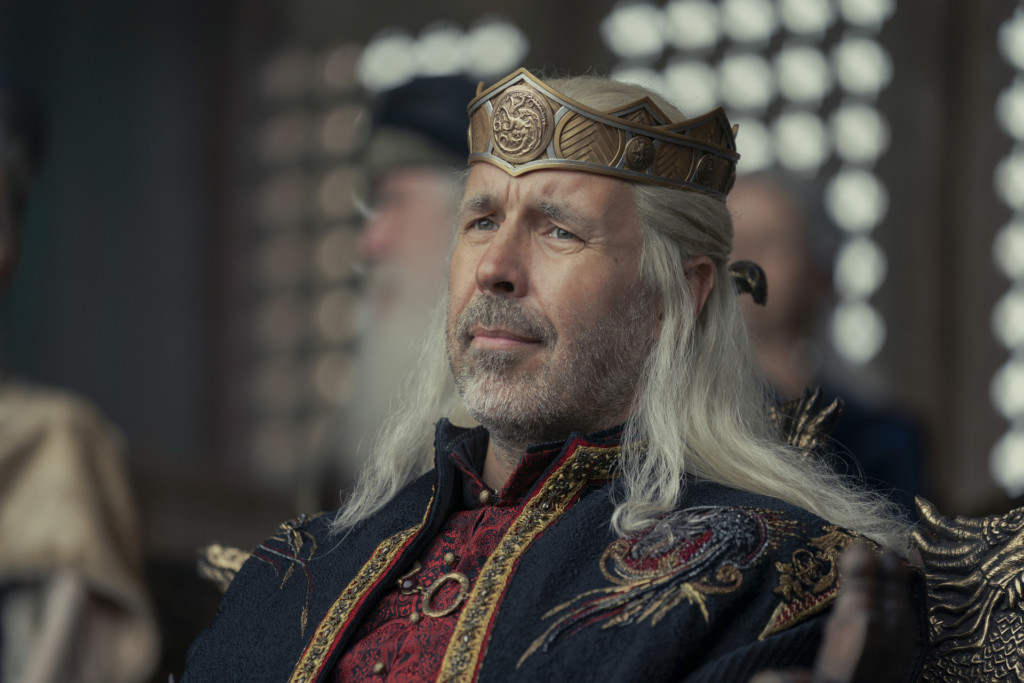
This is a funny yet strangely intriguing question related to the Targaryen family.
The Targaryens are one of the only surviving families to escape the Doom of Valyria thus they are one of the only groups that still speak the language as well as carry out customs and traditions related to the once great city. That also applies to family names that tie back to High Valyrian — the language spoken in the great city.
The Valyrian writing system, or at least a Valyrian writing system, is described as involving glyphs, which basically means symbols rather than words. That could explain why so many of the names that survived the Doom of Valyria are so similar, especially with the way the names are spelled.
Add to that, the Targaryen family was largely built on incestuous roots — Aegon The Conquerer was married to his two sisters — and that just continued the tradition of passing down the same names from father to son, mother to daughter, etc.
Beyond that, the Targaryens are nothing if not a proud and let’s be honest a smug family, so honoring a child with a name tied to a former great ruler or king is just customary. That’s why there have been so many children named Aegon — because who wouldn’t want to have a kid named after the person responsible for conquering the Seven Kingdoms?
The same can be said for the names of Targaryen women and the variation of the names such as Daenys and then Daenerys as well as Rhaenys — one of Aegon’s sister wives — and eventually the name Rhaenyra, as we’ve seen in the show.
Throughout the books, there are more than 50 variations of names mentioned as Targaryens but many of them have been copied and duplicated over time as is tradition with the family. It’s the same reason you have that middle name that doesn’t make any sense to you until your mom and dad remind you that it’s a family name passed down from generation to generation.
“At any point Is Casterly Rock shown in the original shows? I don’t remember it ever being shown despite it’s importance.”
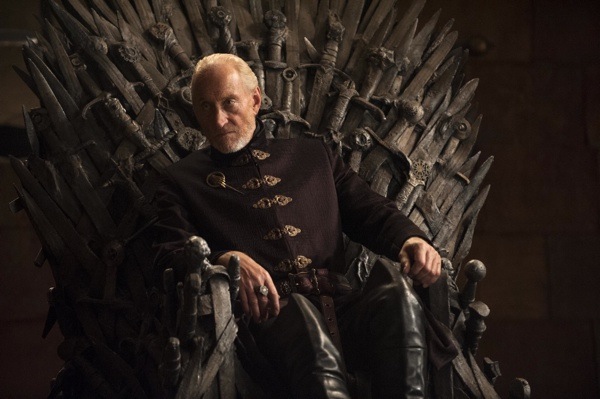
Casterly Rock — the home of House Lannister — is mentioned numerous times throughout “Game of Thrones” but we don’t actually see it until season 7 when Tyrion Lannister helps organize an attack on his former home using Daenerys’ army of Unsullied.
The Unsullied use a series of tunnels underneath Casterly Rock to enter the city without being seen and they quickly dispatch the few Lannister soldiers left there to guard until it’s later discovered that Jamie Lannister essentially sacrificed his ancestral home as a way to bait Daenerys to attack as a strategic move in the war to come.
Now the Lannister family is still a prominent part of the story during “House of the Dragon” and you should expect to meet twin brothers Jason and Tyland Lannister sooner rather than later as both play a part in the story to come. They’re twin brothers — Jason is slightly older and thus he’s the Lord of Casterly Rock while his brother Tyland is deeply embedded in the political system at King’s Landing.
It’s hard to predict if we’ll see Casterly Rock again, although anything is possible as the show continues to expand further and further with each passing episode.
“With time jumps or when show ends wonder if we’d get to see a young Aemon? He died 104 and show is set 170 years prior….”
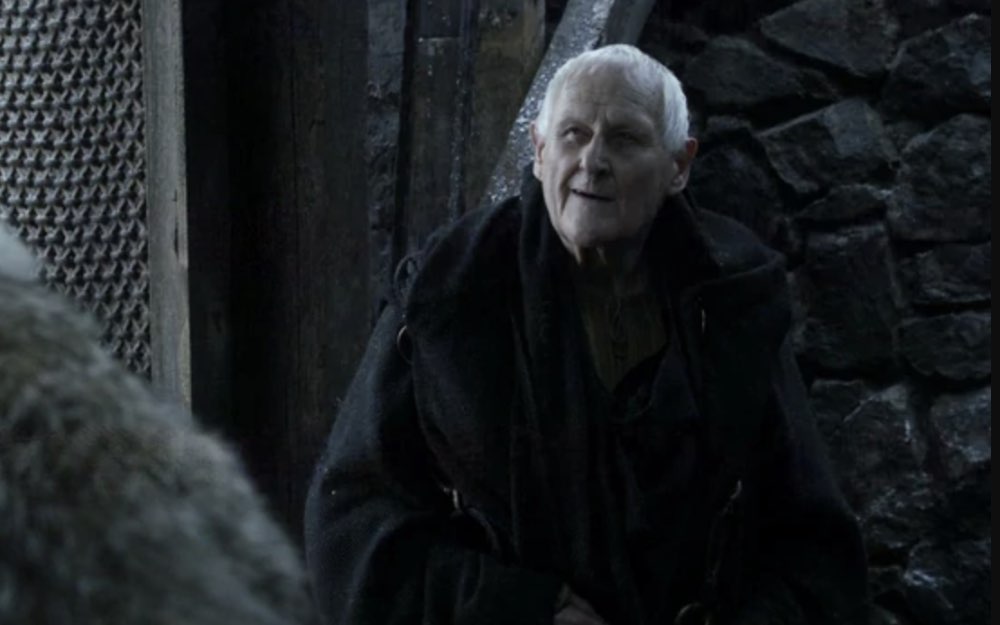
So technically “House of the Dragon” starts 172 years before Daenerys Targaryen is born, which means we’re nearly 200 years before the events that actually unfold in “Game of Thrones.”
As far as Aemon Targaryen goes — a brief reminder that we’re talking about Maester Aemon, who served at Castle Black as part of the Night’s Watch. It wasn’t until Jon Snow was contemplating leaving the Night’s Watch after learning that his father Ned Stark had been imprisoned and branded a traitor that Aemon told him that he was a Targaryen and some things were a matter of duty over family.
Many believed Aemon should have sat on the Iron Throne as the third son of King Maekar I Targaryen, whose first two sons died after one contracted the pox and the other went mad and decided that drinking Wild Fire was a good idea. Rather than ascend to the Iron Throne, Aemon quietly passed on the honor and instead told The Great Council that his younger brother Aegon should serve instead.
Aegon is the King who was once nicknamed “Egg,” which is the subject of another potential spinoff set in the “Game of Thrones” universe after a series of novellas from Martin detailed the adventures of “Dunk and Egg” — Dunk being Duncan the Tall, a former Lord Commander of the Kingsguard, who counts Aegon as his squire
As far as timing goes, Aemon wasn’t born until well after the events in “House of the Dragon.” Aemon was born in 198 AC (Aegon’s Conquest) while Rhaenyra Targaryen was born in 97 AC so the two timelines won’t overlap at all.
If you have questions for Send the Ravens, send them to my Twitter account @DamonMartin and we’ll answer them next week!

